Africa Forum: Centering an African Vision for a New Multilateral Future
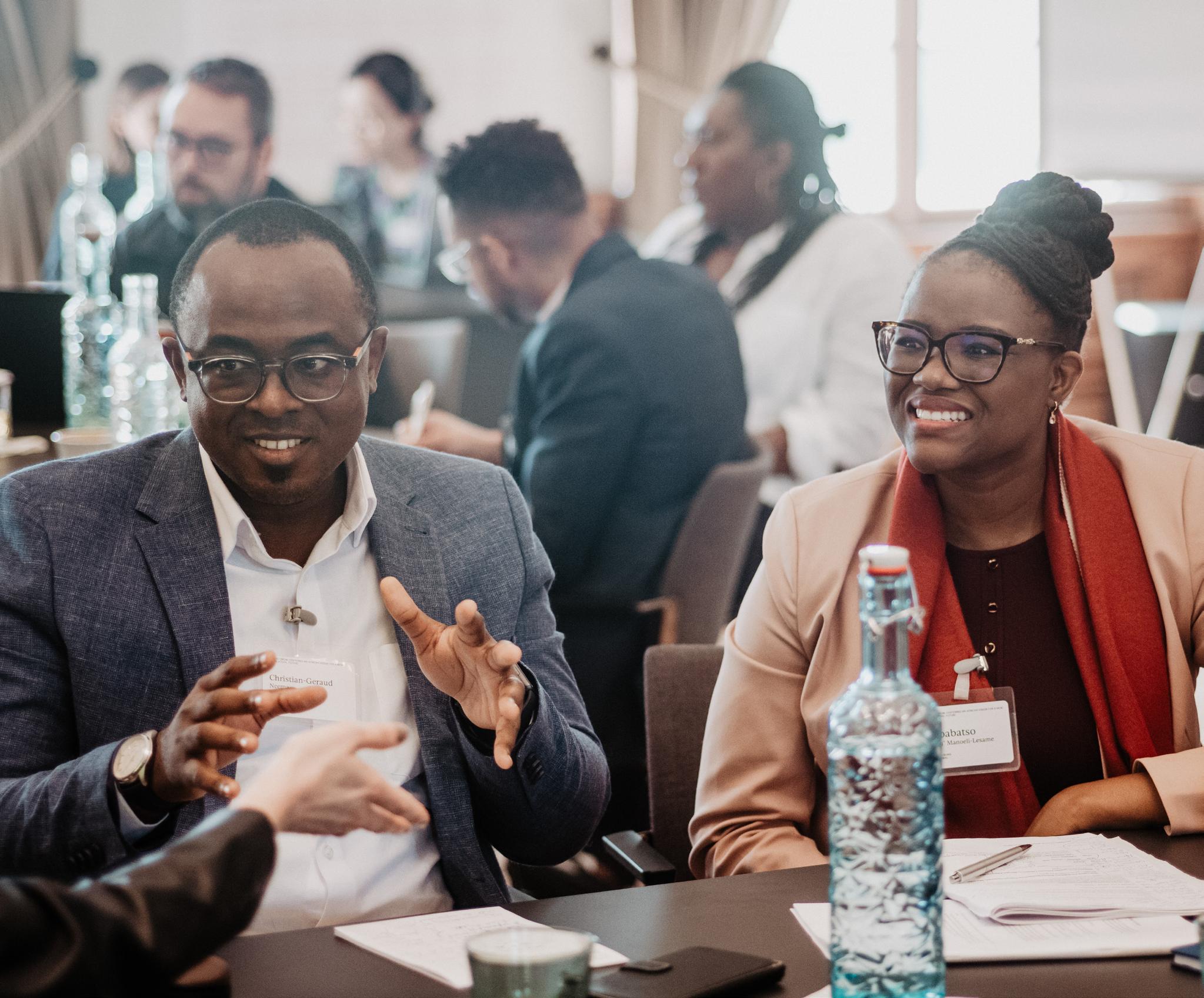
About Pathways to Peace
The Pathways to Peace Initiative addresses urgent geopolitical challenges by providing a forum for open and critical dialogue on key issues affecting political, strategic, economic, and cultural relationships. As an organization dedicated to international peace and justice since 1947, Salzburg Global provides a space for candid exchange among senior thought leaders of divergent views to advance concrete progress on critical issues.

About the Africa Forum
RAPPORTEUR
Aaisha Dadi Patel
PROGRAM DIRECTORS
Charles Ehrlich
Benjamin Glahn
Dominic Regester
Nancy Smith
PROGRAM MANAGERS
Kateryna Anselmi
Edlira Kastrati
EDITORS
Zelpha Marie Bombais
Audrey Plimpton
PHOTOGRAPHY
Richard Schabetsberger
The purpose of Salzburg Global’s "Africa Forum: Centering an African Vision for a New Multilateral Future" was to center African perspectives and ideas in ways that elevate the key role and distinct contributions of the African continent in an emerging geopolitical nexus of cooperation and competition, and more importantly to highlight an African vision for the pathways that might lead to a more peaceful, prosperous, and sustainable 21st century. The Africa Forum convened approximately 40 participants for a 4-day program at Salzburg Global, based at Schloss Leopoldskron in Salzburg, Austria. This was a forward-looking opportunity to highlight Africa’s vision for global engagement and peace, as well as to center Africa in ways that change the conversation about the future of Africa’s role in the 21st century’s geopolitical balance of power.
Usage of Terms
Throughout this report, we use the terms "Africa" or "African continent" when referring to matters that apply to the entire continent or to institutions, initiatives, or issues that span multiple countries or affect the continent as a whole. Wherever possible, we avoid using these general terms when a more precise region, country, or group is intended. This approach aims to reflect a shared geographic space on the continent while recognizing the diversity of people, communities, and realities across the continent.
65 years ago, Ghanaian statesman Kwame Nkrumah made a rallying call to Africans: “We face neither East nor West: we face forward.”
Africa is recentering its role in the world, stepping forward not as a subject of global decisions, but as a co-creator of global solutions. The path ahead is clear — and Africa is already leading the way.
The African continent is at a turning point, driven by a new generation determined to reshape the continent’s future on its own terms. With the world’s youngest population – the median African is aged 19 years old – and a growing demand for justice, equity, and inclusion, the continent is actively challenging outdated systems and advancing bold, African-led solutions.
There is an urgent need to move beyond inherited models and toward intentional, African-led design — grounded in the continent’s own priorities, indigenous knowledge systems, and sovereignty. In the face of climate urgency, widening inequality, debt crises, democratic fatigue, and gender inequity, key pillars for a renewed global order are emerging: youth agency, financial selfdetermination, and people-centered governance.
Africa’s greatest challenge isn’t a lack of ideas - it’s the gap between vision and implementation. People in power – whatever that power may be – must move from protest to design, from aspiration to action. Africa’s future must be African-shaped, youth-led, gender-inclusive, and planet-aligned. And that future starts now.
In April 2025, “The Africa Forum: Centering an African Vision for a New Multilateral Future” convened an intergenerational, international, and intersectoral group of African citizens, members of the diaspora, and a small number of non-Africans working on African issues from across the world. Fellows represented a range of fields and expertise - young people driving youth movements, former government ministers, entrepreneurs, activists, high-ranking officials, academics, and journalists.
The Africa Forum, part of Salzburg Global’s Pathways to Peace multi-year series, brought together highlevel leaders, scholars, civil society actors, and youth to examine Africa’s place in the world and reimagine its role in shaping a new multilateral order.
Over four days, Fellows engaged in provocations, challenging conversations, new ideas, laughter, and song.
At the heart of conversations was the question: How can we reimagine a multilateral future for Africa, viewed through a lens of creation and hope, that is built and shaped through the visions of Africans – not only for Africans, but for Africa to take its seat as a global player?
Fellows called for a new multilateralism - one rooted in dignity and shaped by African voices, values, and visions for the future. From proposals for financial sovereignty and homegrown governance models to calls for equity in global forums, their message was clear: Africa’s future lies not in adaptation, but in authorship.
This report captures that spirit: one of reclamation, resolve, and readiness.
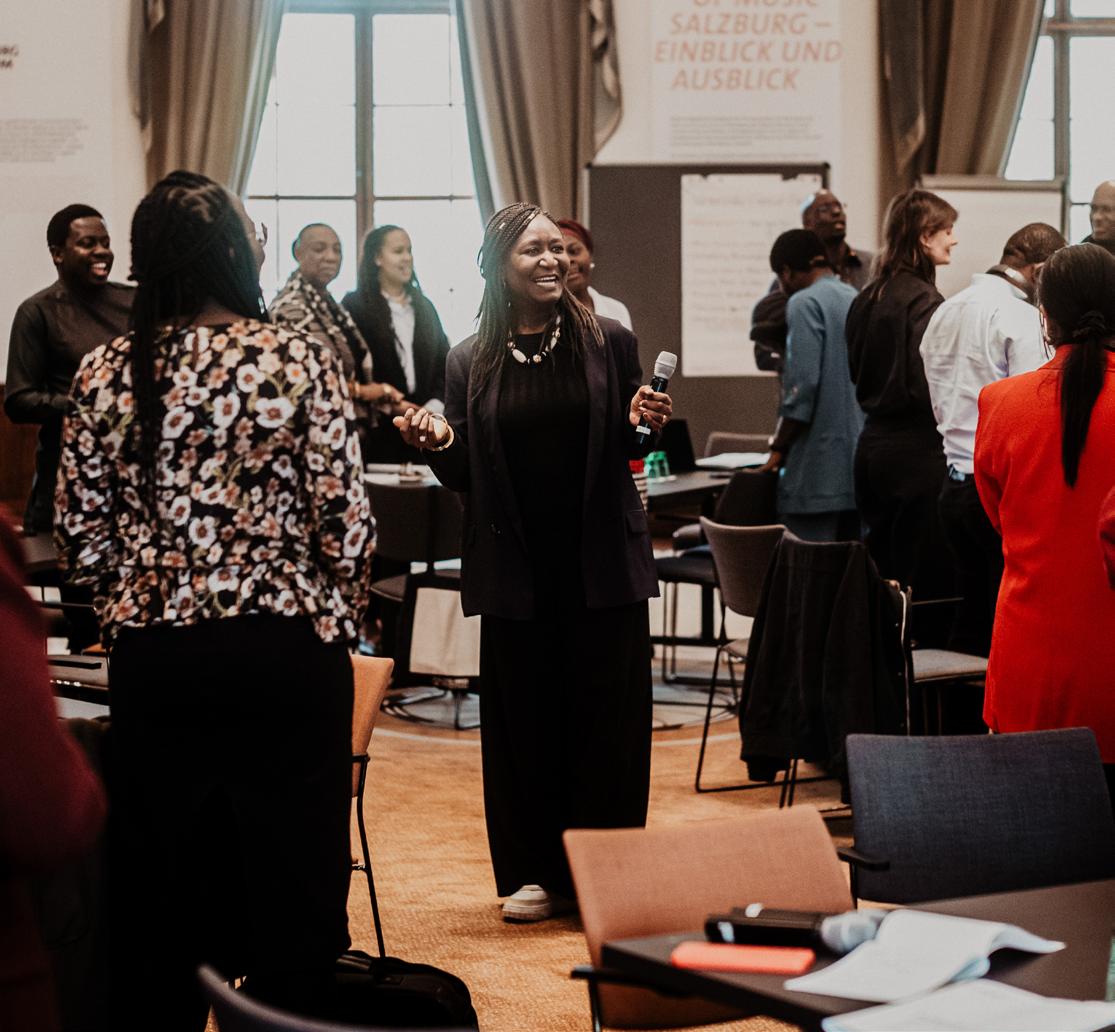
A simple Swahili lullaby sounded through the Schloss, as Fellows at the Africa Forum opened sessions with song. As Africa – birthplace of humankind – took center stage as the topic of discussion, ‘Mbele Mama’, which some translations say means “long ago, mother,” offered a poetic soundtrack to the session.
Africa at an inflection point
After centuries of being treated as sites of extraction, African countries began gaining independence from colonial rule following World War II. But the postindependence era was fraught with military coups and authoritarianism, which often undermined the successful establishment of democratic societies.
Until the late 1980s, most African nations were governed under military dictatorships or single-party regimes. Political dissent was suppressed, and in some countries, this remains the status quo.
Democracy remains relatively young in Africa. It was only in the late 20th century that democratization began to take hold, driven by both internal demands and external pressure to reform. South Africa, for example, celebrated 30 years of democracy in 2024, marking its first multiracial elections in 1994 to end apartheid. Some countries like Botswana, Ghana, and Mauritius have established stable democratic systems, while others, such as Uganda, Zimbabwe, and Ethiopia, continue to hold elections under hybrid regimes and creeping authoritarianism.
“Africa’s future is not a function of chance, but a function of design.”
By 2025, Africa is “being pulled in all directions” as it faces a pivotal choice between strengthening democratic institutions or retreating into revived autocracy. Some countries are becoming “laboratories for authoritarianism,” while others push toward

stronger democratic norms. Civil society, youth movements, legal systems, and even social media are increasingly holding power to account.
Yet many African governments are still falling short of delivering the political systems and outcomes their citizens demand. The tension is part of a broader continental reckoning: Africa is confronting its identity, agency, and development trajectory amid both internal contradictions and external pressures
“Africa is still rising... Are we doing enough to safeguard our future? Are we doing enough to hold our leaders accountable?”
— including the pressures and exclusions of a multilateral system that has long treated Africa “as a project, not a partner.”
Across the continent, there is a seemingly collective recognition: “We’re not where we thought we would be” – an acknowledgement that Africa is at a crossroads.
Institutions like the African Union are being questioned — not only for effectiveness, but for authenticity. Are they genuinely African in ownership, or simply “African in name”? But alongside this critique is a growing momentum for change. With the African Union now holding a permanent seat at the G20, there is a renewed push to reimagine global governance that works with Africa, and not just around it. Participants across the continent are calling for a multilateralism “with Africa at the centre,” underpinned by self-determined tools, like an African debt sustainability institution or an African Ratings Agency.
The opportunity for a different future is real. Africa’s growing demographic, ecological, and cultural capital gives it the potential to lead globally, but only if leadership is reimagined. Country leadership needs to prioritize the needs of people, not creditors or legacy interests. Policies must be built that guarantee a liberated, empowered, and hopeful reality for all Africans.
“Africa's reality is not waiting for saving — waiting for alignment between people, purpose, power.”

2 Generational power shift: Youth leading change
Change is coming, and young Africans are the ones driving this movement into Africa’s new era.
With 60% of the continent's population under 25, young people are standing up against regimes and norms they are tired of, and drafting innovative, creative solutions to call for and create the future of Africa.They need to be empowered as co-creators of the 21st century, not viewed as passive recipients of legacy systems.
“ The youth of Africa do not have the legacy that the older generation have had... so ask them what the way forward should be.”
This energy shift reflects an emerging political agency among youth that does not align with older institutional frameworks. It points to the need for generational transitions in leadership. But this change is not necessarily being welcomed; there is a notable tension between intergenerational collaboration and the demand for younger voices to be central in shaping the future - something that was reflected in the room at times as well.
“How do we shift from educating for the Africa that is, to educating for the Africa that we want?”
Across Africa, youth movements have played a crucial role in demanding democratic reforms, social justice, and accountability. In 2015 and 2016, South African youth called for free, decolonized higher education and broader social justice with the #FeesMustFall protests, which sparked national debates on race, inequality, and the legacy of apartheid. Nigeria’s #EndSARS movement in 2017, also led by youth, protested police brutality and demanded broader government accountability. More recently, Kenya’s #RejectFinanceBill in 2023 and 2024, led by youth influencers and Gen Z activists, online campaigns that resulted in partial rollbacks of proposed tax increases and increased youth engagement in politics.
These are just a few examples of how youth across the continent are using creative mediums – social media, art, and music – to organize, raise awareness, and voice their discontent.
“Youth are often invited in the margins — who is holding the ladder for us?"
What these protests have in common: they operate through social media savviness and connectivity, they are intersectional, and they recognize that struggles don't exist in isolation. Most importantly, they continue to be resilient: Despite crackdowns, arrests, and threats, youth movements in Africa continue to grow – as does the demand for structural change in countries across the continent.
3 The future is female
One theme is clear and urgent: women's participation in Africa must shift from peripheral involvement to central leadership across all facets of social and political life.
While African women have long been at the forefront of community resilience and movement-building, they continue to face systemic exclusion within deeply patriarchal structures. From walking miles for water to facing heightened risks of gender-based violence, women – especially in rural areas – bear the brunt of environmental and economic crises. These realities are not isolated; they stem from longstanding inequities in access to education, financial systems, and decision-making spaces.
Over 60% of Africa’s 450 million unbanked people are women - a sobering statistic that highlights not only economic disempowerment but missed opportunities for inclusive growth. Many are trapped in debt cycles with no solution to structural barriers in sight. Meanwhile, girls are often forced to drop out of school due to domestic responsibilities or climate-related challenges, further reinforcing intergenerational inequality.
“Inequalities are gendered and regional — 7 out of 10 most unequal countries in the world are in Africa.”
Yet, despite these challenges, a clear vision for empowerment is emerging – one in which women are not merely included but are actively leading and shaping the future. Young women in particular are beginning to demand not just a seat at the table, but real power. They are reclaiming voice, narrative, and influence through civil society activism, innovative education models, and grassroots organizing. They are demanding to be centered in climate response, biodiversity economies, and tech innovation. A welleducated, tech-savvy generation of African women is not just a demographic asset - it is the key to unlocking the continent’s full potential.
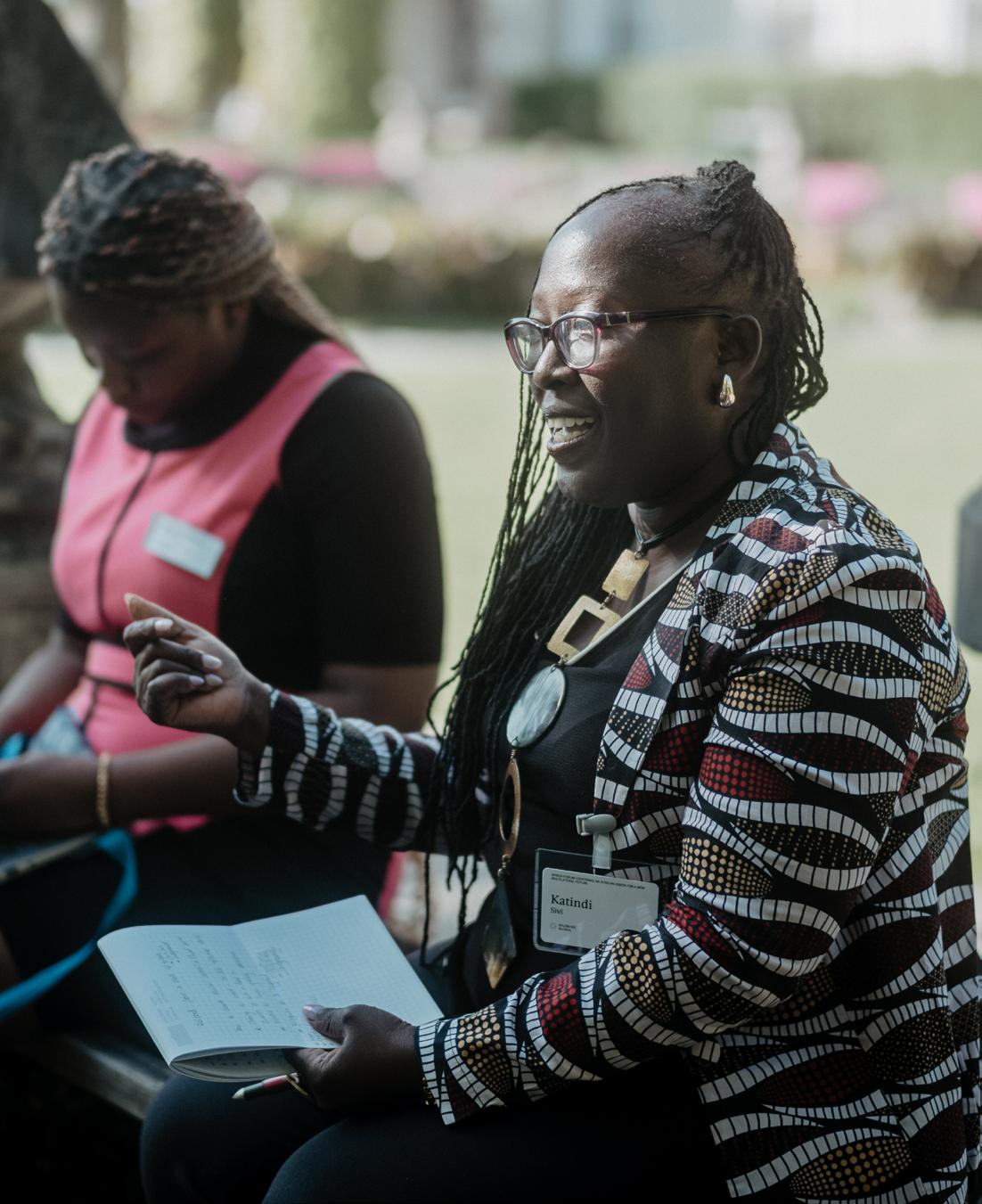
“Youth and women lead boldly. Leaders answer to their people, not their creditors.”
Dismantling patriarchal and extractive systems requires women to be more than participants. They must be architects of new governance models, peacebuilding frameworks, and policy agendas. Feminist leadership – collaborative and decolonial –offers a model for this progress.
Existing frameworks, such as the African Union’s African Women’s Decade and the Convention on Ending Violence Against Women and Girls (CEVAW) hold transformative potential, but only if they are fully implemented and locally owned.
Ultimately, true transformation – and building a feminist future – means reimagining systems of power to center care, community, and sustainability. It means leadership as the norm for African women, rather than the exception. And it means recognizing that women’s issues are not standalone, but fully intersectional; they intersect with youth, governance, the environment, and structural reform.
“We must center women for African growth.”
Africa’s future hinges not on women surviving its systems, but on women redefining them from the inside out.
4 Africa's call for genuine allies and self-determination
Africa is not a project, but a partner - not a passive subject, but a global co-architect. The continent is not looking for saviors, but for partners who respect African agency and support its mission to reclaim power, narrative, and space.
International actors must support African-led initiatives, rather than impose externally driven agendas. Beyond solidarity, Africa needs partnerships and alliances that recognize and support its right to negotiate from equal footing. Genuine allyship requires amplifying Africa’s self-defined priorities and moving beyond models that reinforce neocolonialist thinking or dependency. Partnerships must be reframed around mutual respect, shared responsibility, and dignity – with African agency at the center.
Acknowledging Africa’s extensive colonial history, where it has long been viewed through an extractive lens, is important – but addressing it means moving forward constructively. This includes not only being critical of harmful external influences, but also evaluating the limitations of existing governance and economic models within Africa itself.
Reframing governance and multilateralism
Governance in Africa must be grounded in effectiveness, cultural context, and human dignity, not in borrowed institutional forms. The dominant narrative that equates democracy with periodic elections often misses the mark and is disconnected from the lived realities of many Africans, for whom basic survival outweighs the significance of the ballot box. Africa needs governance systems that are locally rooted and people-centered, not performative replicas of external political blueprints.
Another concern is the prevalence of “accidental leadership” and elite capture, where power is secured through chance or patronage and used to serve narrow interests. This undermines public trust and entrenches inequality, keeping many countries trapped in a vicious cycle. In light of this, leadership needs to be redefined as accountable stewardship rather than entitlement.
Equally, multilateral bodies like the African Union (AU) and various regional economic communities must evolve from symbolic platforms to agents of transformation. Rather than issuing statements and hosting summits, these institutions must assert real influence in shaping and implementing continental policy, defending democracy, and mediating conflict.
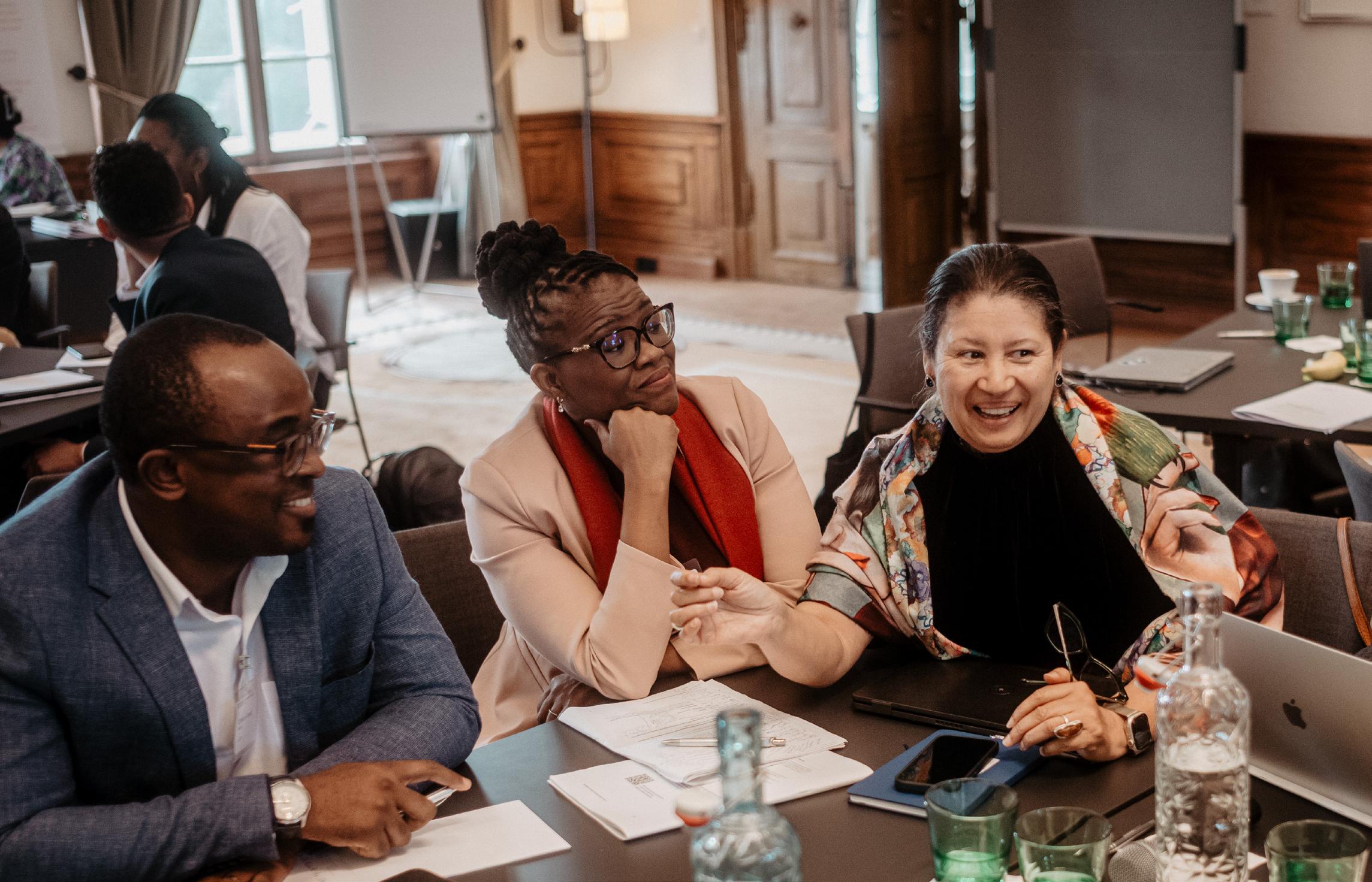
The demand for economic agency
Africa’s structural relationship with the global economy remains extractive and disempowering. Without economic autonomy, true sovereignty will remain elusive. Rather than rely on donor-driven models, the continent must reclaim ownership over its fiscal and development agendas.
One proposal is to establish a regionally grounded African Credit Ratings Agency to counteract the biases and risk inflation of Western agencies (such as S&P and Fitch) that often distort African countries’ borrowing potential. Similarly, a PanAfrican tax system could harmonize revenue collection and create sustainable internal financing, lessening dependence on volatile aid or debt.
“Africanize African institutions.”
While institutions such as the African Development Bank (AfDB) play a key role in infrastructure financing and economic integration, they still face foreign shareholder influence, with countries like the U.S., Japan, and various European states holding voting power. This undermines the very idea of selfdetermination, and raises questions about whose interests are prioritized. Reforming the governance structure of the AfDB and similar entities to ensure African-majority control, increased transparency, and alignment with continental priorities will make them more empowered and equitable.
Bridging public and private sectors to promote innovation and inclusion should support valuecreating industries, rather than reinforce commodity dependence.
The broader vision is to shift Africa away from extractive value chains and toward generative economies that build long-term resilience, human capital, and equitable growth. Mobilizing domestic savings and attracting diaspora investment could also be key to achieving genuine financial sovereignty for Africa.
“For too long, multilateralism has treated Africa as a project, not a partner.”
Protecting
natural resources for continental
growth
Africa holds immense natural wealth — biodiversity, fertile land, and water systems — yet these are often externally valued, poorly governed, and ecologically strained. If managed equitably and sustainably by African people, these unique and critical natural resources could power a more resilient and independent future..
If the continent is serious about sustainable development, it must re-center nature and ecosystems - not as afterthoughts, but as foundations. This means drawing from indigenous knowledge that has sustained these ecosystems for generations, and putting women and girls at the core of climate response –not simply as vulnerable populations, but as vital solution-builders.
There needs to be a shift away from global development frameworks that impose SDG-centric mindsets, which consider the context in a global perspective, to locally rooted models that prioritize ecological health, regeneration, and community resilience. The continent’s future depends on how the natural systems that feed, shelter, and sustain its people are protected and governed.
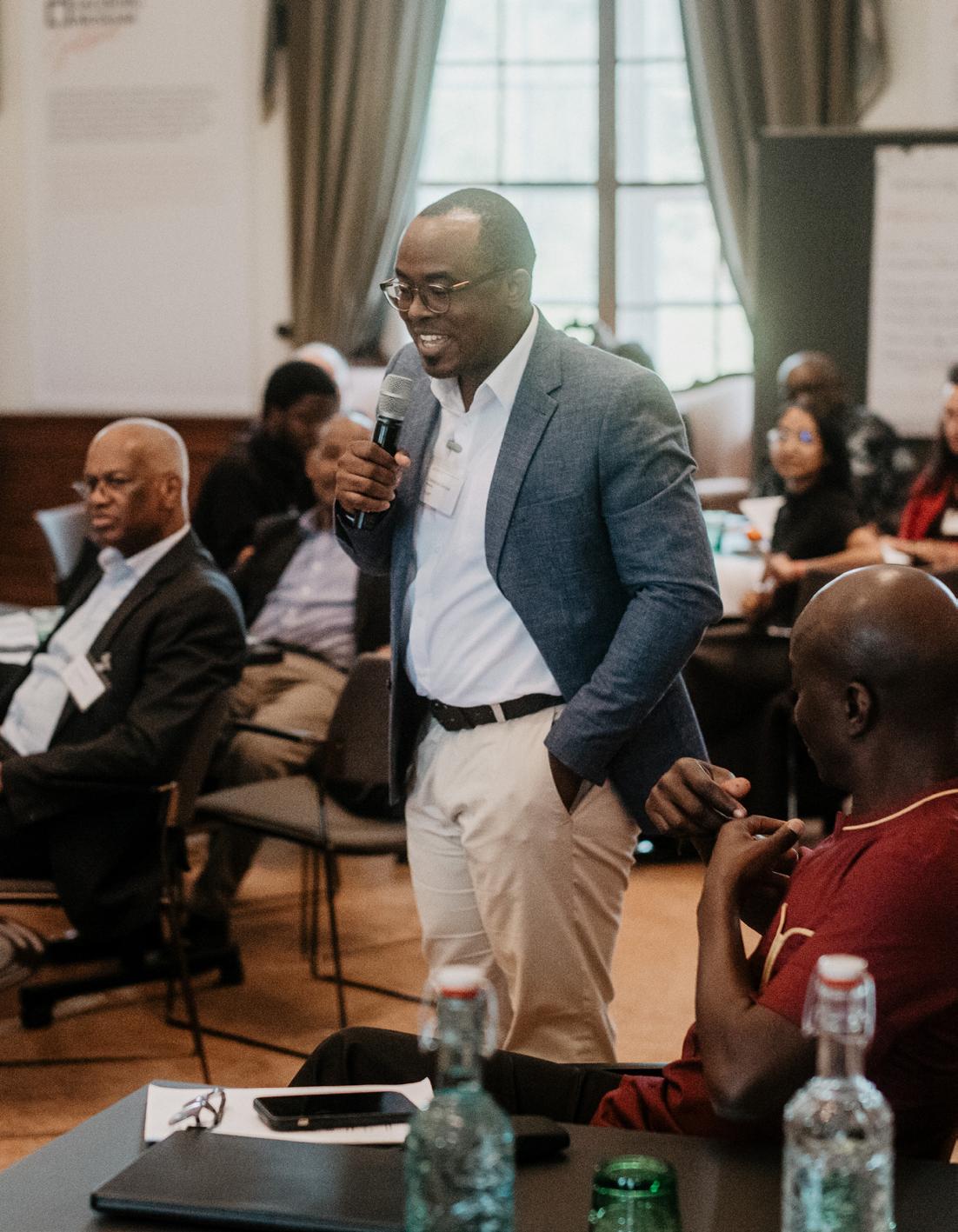
5 Reclaiming Africa's narrative
Transforming Africa’s future begins with confronting its past and reckoning with its present. That means reclaiming narrative and power from colonial legacies that still shape everything from governance systems to economic dependencies.
It's not enough to critique dependency; it needs to be actively dismantled. This includes acknowledging the historical weight many African countries still carry, and challenging the multilateral structures that continue to operate on terms defined by non-African actors. Reframing Africa’s place in the world begins with reframing and reconfiguring how the world sees Africa, and how Africans see themselves, each other, and their potential in the world.
“We need spaces where we can be honest with ourselves.”
Recentering Africa requires shifting from dependency to dignity, and from inherited systems to intentional design. But reclamation is only the beginning. Shaping the Africa that Africa wants means envisioning a future that is autonomous, self-determined, and unapologetically rooted in African priorities. It means moving from resistance to creation, and from reacting to old systems to building new ones.
Implementation is key: African solutions must be delivered to African problems through frameworks built by African institutions — like the African Union — not as a formality, but as a foundation.
The future does not lie in adapting imported models; it lies in trusting Africans’ own capacity to design, lead, and govern the transformation that Africans need. This is about agency, action, and a shared commitment to building a continent that works for Africans.
Moving forward
For African institutions, the call is clear: embed a pan-African financial architecture governed autonomously, ensure policy coherence between the AU and regional blocs, and bring Agenda 2063 to life with measurable, time-bound actions.
Governments must view youth and women as strategic assets, not just demographic categories, and invest in them meaningfully. That includes decentralizing governance and reforming tax and public systems through technology-enabled transparency.
Civil society and youth must continue to mobilize across borders, build new multilateral platforms rooted in shared African values – not donor expectations – and continue to demand accountability over access.
“African conversations about Africa need to happen in Africa.”
To global partners, the message is unequivocal: engage Africa as a co-creator, not a passive recipient. Respect sovereignty in policy and finance, and support homegrown institutions and knowledge systems.
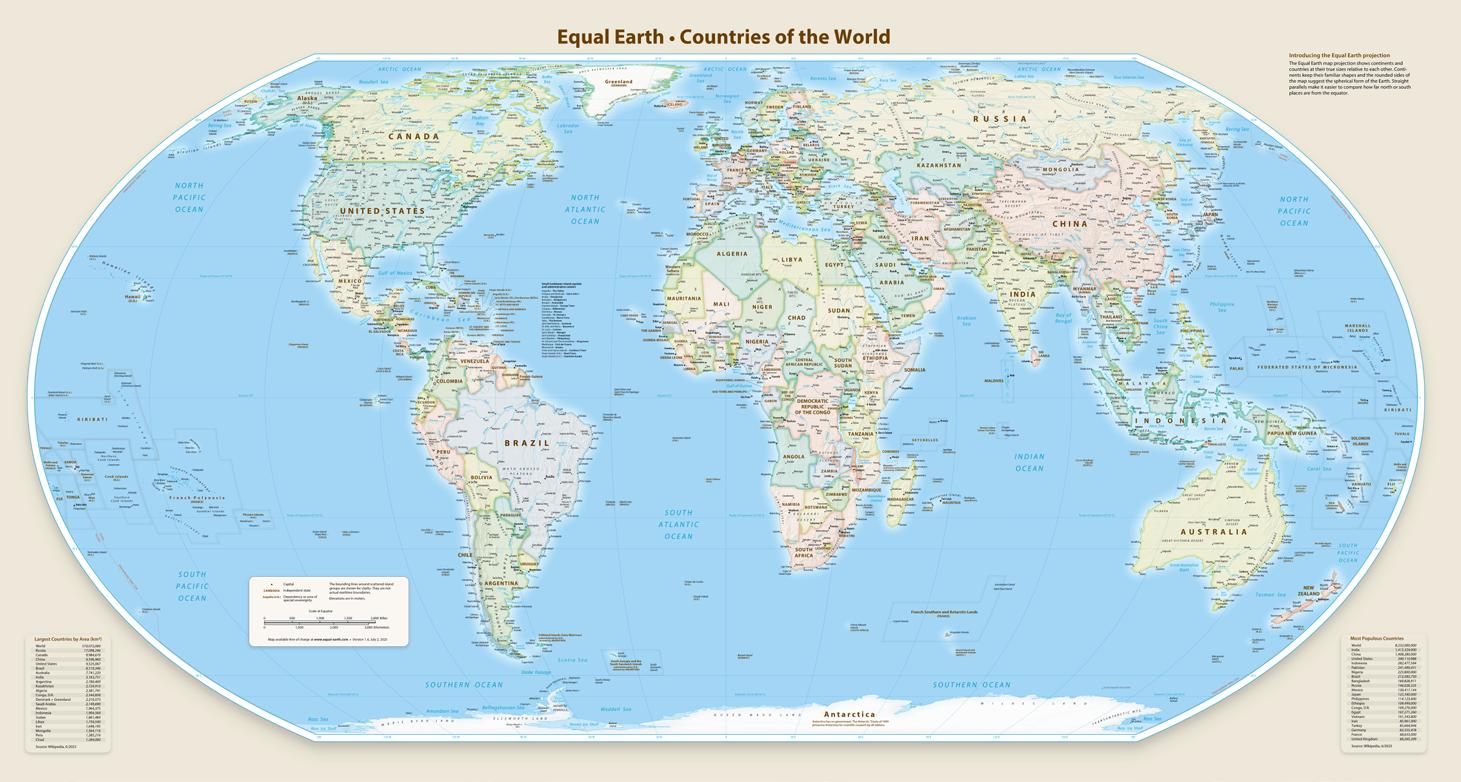
#CorrectTheMap
A world map based on the Equal Earth projection, which tries to solve the problem where Africa always ends up looking smaller than it is. Addressing the injustice of Africa paying the price of being depicted incorrectly begins with fairly recognising its space and place. (Yemsrach Yetneberk Alemu/The Continent)
Designing an African-shaped global future
What future are we designing today?
Africa must no longer ask what can be extracted –it’s time to ask, and answer, what it can create.
The way forward demands context-specific, homegrown models that reject imported paradigms and empower civil society. The multilateral system must evolve with Africa, not merely for it.
What’s needed now are accountable, aligned, and future-facing institutions, and deep investment in the education, ideas, and infrastructure required for the Africa that Africans want. This path is not about novelty, but intentional design: implementing existing frameworks with integrity, empowering networked leadership, and replacing extractive logic with generative vision.
The Africa Forum called for a transformative reimagining of Africa’s role in the world, urging a shift from being treated as a marginalized, extractive space to being recognized as a cocreator in global systems. A new multilateral vision must center African agency, driven by youth and women, and rooted in the continent’s complexity: its colonial legacies, systemic exploitation, and fractured governance.
Following their conversations in Salzburg, Fellows committed to ongoing collaboration to advance their shared vision of a new, African-led multilateral future. They left intending to pursue continued, homegrown dialogue, grounded in diversity and honesty, on the African continent: “We need spaces where we can be honest with ourselves.” That truth underscores the value of African-led convenings and the importance of reclaiming narratives and building discourse that reflects African realities and aspirations.
While some Fellows initially questioned why they were gathering in an Austrian palace to discuss Africa’s future with fellow Africans, many later described it as a valuable gathering and space –one that sparked ideas, enabled new connections, and inspired plans to convene future meetings on the African continent and to build their own platforms for continued dialogue.
Fellows also underscored that building a more equitable and sustainable continent requires centering the voices of both women and youth
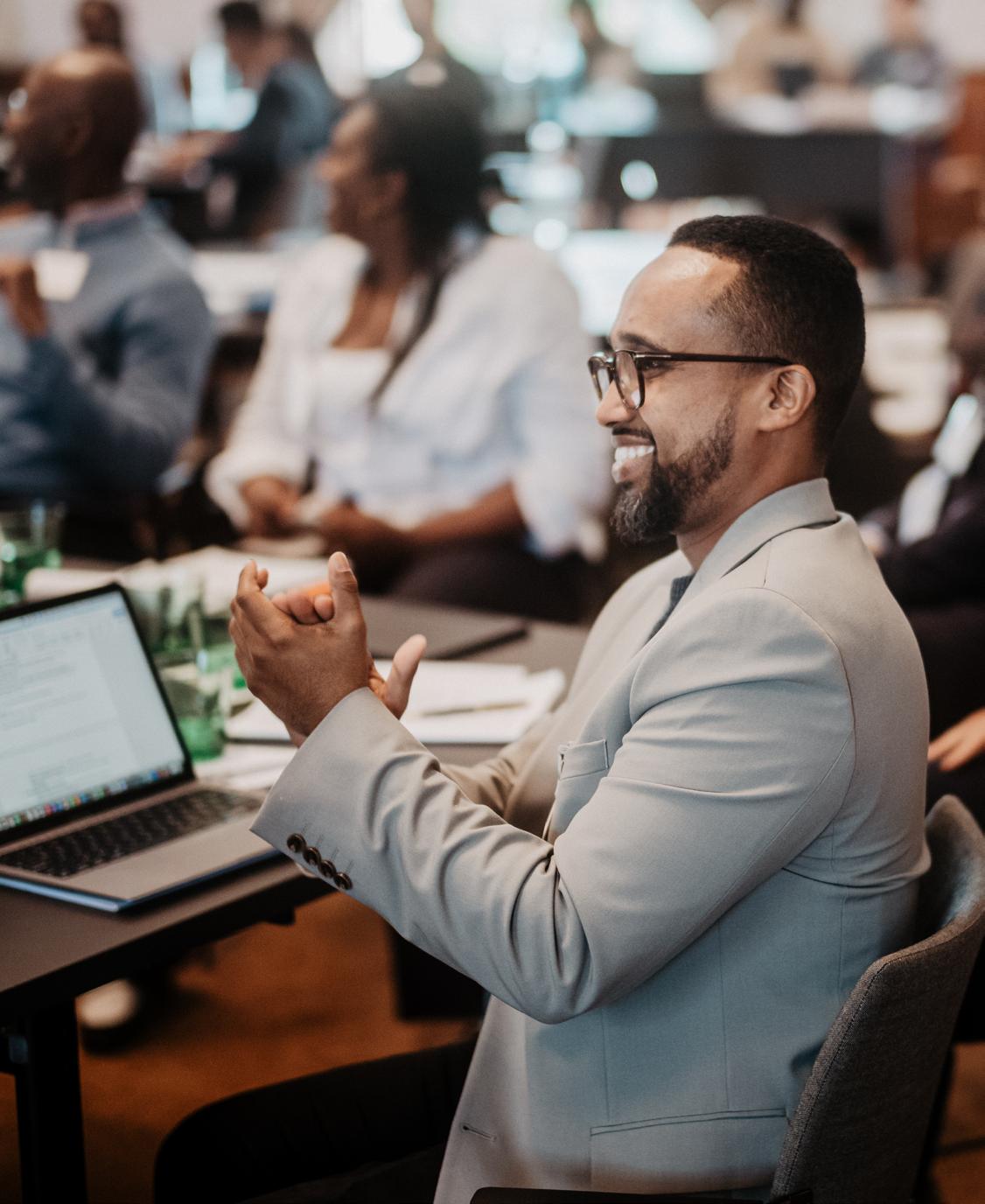
in advocacy, design, and innovation. Achieving this vision requires an intersectional approachrecognizing that struggles around gender, age, and systemic inequality are deeply connected and must be addressed together. Acknowledging those inequalities is not a weakness, but a necessary condition for effective problem-solving and moving forward constructively and equitably.
At the same time, economic opportunities are also open to be unlocked: new technologies and data infrastructure are opening massive opportunities for growth, while the decisions of international credit rating agencies continue to misrepresent African realities and suppress opportunities. By asserting greater autonomy over decisions that affect the continent – shifting power to African institutions, experts, and contexts – Africa can reshape narratives and policies to reflect its own priorities and ultimately build a more just and accurate economic reality.
Africa is home to abundant natural wealth: rich ecosystems, arable land, broad biodiversity, strong cultural capital, and a generation ready to lead. The continent has the potential to grow significantly, even beyond its current aspirations, and is ready to co-create, not just participate. Any path forward must reflect the nuance of Africa’s many realities: broad, rich, non-linear, and diverse.
Africa is on a journey of reclamation – from stolen artefacts, to distorted narratives, to the global systems it was historically co-opted into. That reclamation is not only possible - it is already in motion.
About Salzburg Global
Salzburg Global is an independent, non-profit organization dedicated to convening open-minded leaders to overcome barriers and open a world of better possibilities
Since 1947, we have worked with over 40,000 Fellows from more than 170 countries to address the most pressing issues of our time. Our first session brought together over 100 young Europeans and Americans – including survivors of concentration camps, veterans of resistance movements, prisoners of war, and former enemies. They met at Schloss Leopoldskron, an Austrian palace that had been occupied by the Nazis, in a country that was still under Allied military control. Together, they wrestled with how diverse and fractured groups of people could come together and begin to create the conditions for peace in the aftermath of war.
Today, the challenges may be different, but our mission still carries that same founding spirit: To overcome barriers and open up a world of better possibilities.
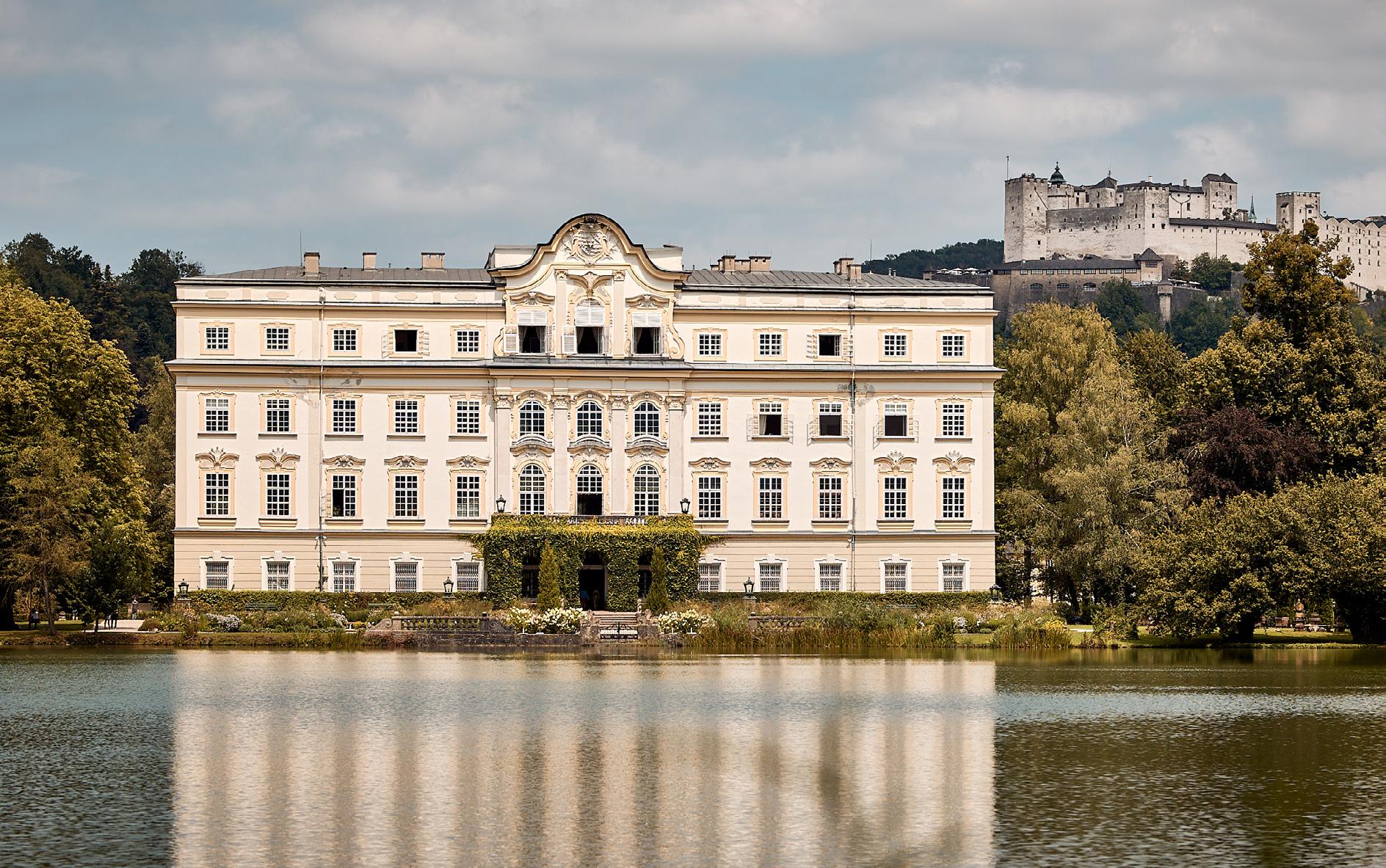
A Schloss with a mission
Since 1947, we have made our home at Schloss Leopoldskron, an Austrian palace with a rich and complex history stretching back to the 18th century.
The Schloss has been many things over the years – the summer home of a notorious Prince Archbishop, a cultural hub for Europe’s theater scene, the home of famed director and impresario Max Reinhardt, a Nazi administrative headquarters, and a monument to the past.
Today, it is a thriving center for dialogue and debate – a place of refuge and reconciliation where diverse leaders from around the world gather for conversations of consequence. We are committed to reclaiming the past of the Schloss and serving as stewards of its future.
